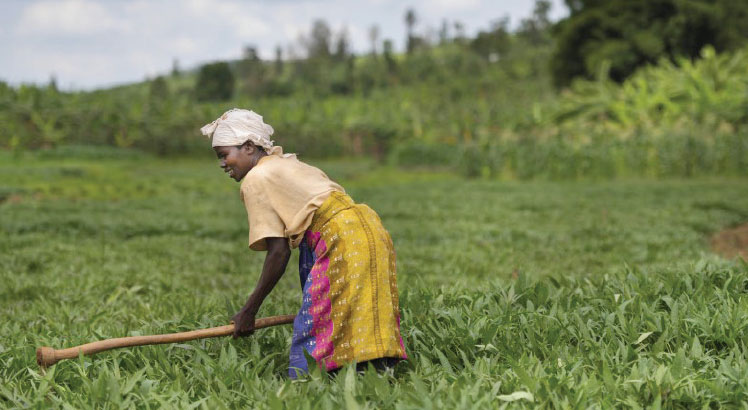Forex shortage persists
Malawi’s foreign exchange reserves continue to be under pressure with latest market reports indicating dwindling of gross official and private sector reserves.
The situation has, in turn, continued to strain the exchange rate movement, with the kwacha depreciating to K823.60 against the dollar, according to Reserve Bank of Malawi (RBM) figures contained in a latest Bridgepath Capital Report for March.

The local unit has continued to swim in troubled waters shedding about 4.33 percent against the dollar due to the decline in foreign exchange supply which has, in turn, put pressure on the country’s foreign exchange reserves.
Figures show that gross official reserves—under the direct control of the RBM—dropped by 2.83 percent to $374.48 million as at March 31 from of $385.40 million in February.
On the other hand private sector forex reserves also decreased by 3.86 percent to $391.49 million as at from $407.22 million as at February.
The drop in the reserves position, according to a market analysts is a reflection of the increasing burden on the central bank to support the foreign exchange market with liquidity to help either in smoothening the rate of depreciation or payment.
But Bidgepath Capital Limited in the March Economic report says rebuilding the foreign exchange reserve position is crucial at this time as it would help with maintaining liquidity.
According to the firm, the country can still engage in international trade in the event where there is Limited inflow of foreign currency.
Says the firm: “If for instance, the effects of the tropical storms dampen the agricultural productivity in the current season, such that the proceeds earned from the international sale of the domestically produced commodities is insufficient for the economy’s importing needs, the foreign exchange reserves could be used to cover the deficit.”
Financial Market Dealers Association of Malawi (Fimda) president Mclewen Sikwese is on record as having said that diversifying and strengthening the export base beyond what Malawi has traditionally produced for years is what the country needs.
He said Malawi has the capacity to produce commodities that are in high demand on the international market.
Sikwese said: “There is no shortcut to getting out of the foreign exchange fix. Measures looking to address both the demand and supply side of foreign exchange need to be adopted.
“Import substitution is critical to arrest the escalating demand for foreign exchange, considering the country’s appetite for imports and lack of domestic productive capacity.”
Troubled by the declining forex position, RBM recently announced that it had revised requirements for mandatory sale of export proceeds with immediate effect, a move meant to improve forex liquidity in the market.
Under the new provision, RBM said all exporters shall sell a minimum of 30 percent of their export proceeds to the RBM through authorised dealer banks while retaining, at most, 70 percent of the proceeds in their foreign currency denominated accounts.
Malawi, an agro-based economy, experiences seasonality in the foreign exchange market; hence, the depreciation of the currency also follows the seasonal nature of the market.
During the lean season there is less forex coming into the market as the tobacco season is closed and there is high demand for forex as farm inputs like fertiliser are being imported, like the case now.
Besides these factors, the kwacha fall has been worsened by the reduced trading activity in view of the Covid-19 pandemic which resulted in lower-than-expected export earnings amid the growing demand for Covid-19 related imports and seasonal agriculture materials.






One Comment